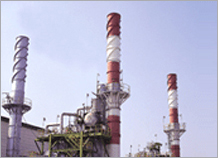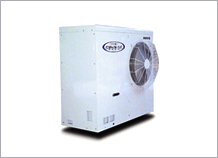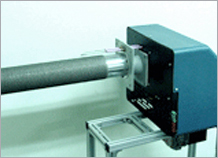Affiliated Homepage Shortcut Button
Kids KOGAS
KOGAS
Current page :
Introduction to Natural Gas Use
- There is natural gas wherever energy is needed.
- Natural gas accounts for 10% of domestic energy consumption, it is supplied nationwide through local city gas pipelines network, and it is used in various settings such as the home, industry, and power generation.
- Natural gas is used in various industrial processes contributing to productivity improvement, pollution prevention, quality improvement, and work environment improvement.
Move left and right.
| Household Use | Industrial Use | Power Generation |
|---|---|---|
| Air conditioning | Boilers | LNG combined cycle power |
| Hot water | * Ceramics/Steel | District heating |
| Cooking | Air conditioning | Cogeneration |
| Drying | Transportation | Fuel cells |
| Cold heat | ||
| ** C1 chemistry |
- * Ceramics/Steel: Heating and heat treatment
- ** C1 Chemistry: Technology to make high-value substances such as DME, methanol, and hydrogen using methane (CH4), the main component of raw natural gas
Fields of Natural Gas Use
Cogeneration

In cogeneration, electricity is produced by a prime mover (e.g., gas turbine, gas engine) using primary energy (e.g., gas, oil), and heat generated at this time is collected and used. It is therefore an economical power generation method that can achieve more than twice the efficacy of conventional power generation methods.
| Conventional Power Generation | Total efficiency : 30 - 35% |
|---|---|
| Cogeneration | otal efficiency : 70 - 80% |
Gas Cooling and Heating Equipment

- This is advantageous in terms of initial investment and operation cost reduction since it is a combined cooling and heating method.
- It abides by government policies regarding features such as small installation area, ease of handling, and no need for qualified personnel.
- A support system is being implemented since it is contributing to environmental protection and energy demand management through using clean fuel. Most new buildings are adopting gas cooling, and gas absorption air conditioners and GHPs are being distributed.
- Advantages
- It can contribute to environmental improvement by not using freon, which destroys the ozone layer.
- It is economical since it can perform cooling and heating with one device.
- It can replace cooling power in summer, and it is clean since it uses natural gas.
- It generates low noise and vibration, and has a low operating cost.
- It applies the absorption gas cooling principle: water evaporates at a low temperature (6.5oC) in a vacuum (1/100 atmospheric
LNG Cold Heat Industry
Cold heat generated during the natural gas liquefaction process is recycled. Cold LNG has approximately 200 kcal per kg (latent heat of evaporation: 120 kcal/kg, sensible heat: 80 kcal/kg), so this can be used in related industries.
- Applications of the low temperature (-162°C) of LNG:
- Air liquefaction separation: liquid oxygen, nitrogen, and argon are produced.
- Refrigerated warehouse: LNG cold heat is used directly and indirectly in the food sector.
- Cold and thermal power generation: power is generated by recovering the expansion energy generated when LNG is vaporized.
- Low-temperature crushing: waste products such as used tires are recycled by crushing them at low temperature.
- KOGAS is active in R&D to use cheap cooling effectively for artificial skating rinks, ski slopes, and district cooling.
- Liquefaction Temperature of Various Gases (°C)
You can check information about air, methane, ethane, propane, n-butane, n-pentane, n-heptane, nitrogen, and water. Air Methane Ethane Propane n- Butane n-Pentane n-Heptane Nitrogen Water -194 -162 -89 -42 -0.5 36 98 -196 100
Natural Gas Vehicle (NGV)

- The government began operating natural gas buses in the host cities of the 2002 FIFA World Cup in June 2000 to reduce domestic air pollution after the high standards of CNG buses was confirmed through piloting by KOGAS from 1998 to 2000.
- Natural gas buses were introduced in Korea under a strong government policy, and stationary charging stations, mobile charging stations, and LCNG charging stations are installed and operated at public parking lots and depots.
- Natural gas vehicles (NGVs) are an environmentally friendly means of transportation, supply is expanding worldwide, and major advanced EU countries plan for 10% of all vehicles to be NGVs.
- Natural gas as automobile fuel has excellent combustion and exhaust gas characteristics such as high octane number, high combustion limit, low unburned hydrocarbon emission, and reduced CO2 emission, so it is the most realistic fuel to abide by emission regulations.
- Currently, only CNG buses are in domestic operation as natural gas vehicles, but nowadays, old diesel trucks are being converted to CNG, and LNG vehicles are being developed. Before the construction of the Daejeon LCNC charging station in 2004, there were only stationary or mobile CNG charging stations. However, the domestic natural gas vehicle-related business will continue to grow, so charging stations will diversify, with facilities such as VRA and LNG charging stations entering operation.
Boiler/Gas Burner

- Combustion boilers come in various types and sizes, from home heating to industrial steam boilers. Natural gas boilers do not emit sulfur at all, so it is possible to recover waste heat.
- By installing an economizer, efficiency is improved by about 7?8% compared with oil boilers, and there is no need to install exhaust gas treatment facilities such as dust collectors, washing towers, or desulfurization plants.


